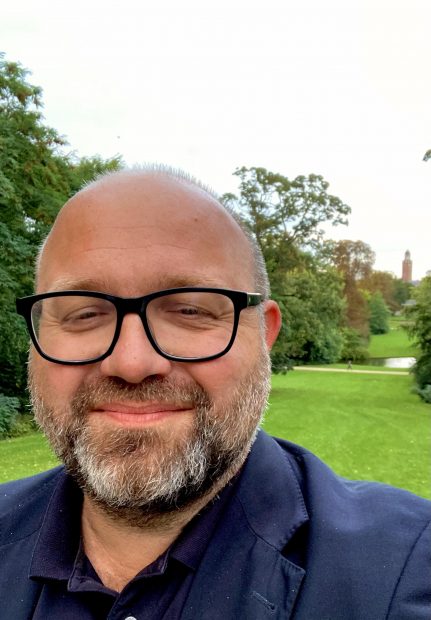News
Local Election 2021: Bidding to volt the fence and welcome Denmark into the fold
This article is more than 4 years old.
French candidate Mathieu Pouletty is seeking fellow neoliberals in Frederiksberg
In the upcoming municipal elections in Frederiksberg, French candidate Mathieu Pouletty will be seeking to secure a seat for Volt Denmark.
Pouletty wants to introduce a more pan-European approach to the municipality of Frederiksberg, which has been under Konservative rule for the last 100 years.
“We’re truly European”
The party was founded in 2017 as a response to Brexit and the right-wing shift across Europe. But while it has been growing steadily in western European Countries, Volt Denmark only counts around 100 members.
With its slogan “United in diversity”, its policies are mostly aimed at attracting support among young neoliberals.
Election newbies
This election marks the first one in which Volt will be featured on the poll.
CPH POST caught up with Pouletty to find out more.
Mr Pouletty, you are a candidate for a European party running for representation in Frederiksberg’s municipal council. In what way does Volt’s politics make sense on a municipal level?
It does make a lot of sense because we understand ourselves as truly European. And that’s what makes us unique and sets us apart. Since we have members all over the EU, we can learn from one another and exchange ideas – you could understand it as a best practice approach. Let’s just say that we’re talking about something that our team in France had success with, and we can further investigate whether it’s applicable in Frederiksberg. Or maybe it would also make sense if you compared us to a parent company with several bases across Europe that gets frequent feedback from its subsidiaries. Although it’s important to point out that we do not have a parent company!
So, what do you want to change?
This is the first time a French guy has stepped up to get elected in the municipal election. And that’s a bit odd because we do have a lot of international residents in Frederiksberg. This is also what motivates me, as I would like to promote getting involved as a non-Dane. I’m all in for a more participative and inclusive democracy: that’s the baseline of our political program as well.
Funnily enough, there are many expats that don’t actually know about their right to vote on a municipal level. But one is automatically allowed to cast their vote at this level, as long as you’re a citizen of an EU member state, Norway or Iceland. Brits may take part if they’ve been living here since the beginning of 2020 and non-EU citizens who have lived here since 2017. We need these people to bring another point of view to the table.
Overall, we have many ideas about what we want to establish in Frederiksberg. For example, some sort of democracy house for example, where frequent get-togethers take place, along with cultural events. Also, a chamber of commerce that provides a space for open conversation for everybody who wants to build up a business of any sort here.
Besides, we also want to create more parking spots, but outside the municipality, so a bit less central. Many Frederiksberg residents use their cars on weekends only, so during the week they just take up a lot of space.
Another thing on the list is twin cities. Right now, Frederiksberg is only twinned with cities in the Nordic countries. We’d like to broaden the international collaboration a bit.
Would it be fair to say that attracting support in Denmark is more of a challenge than, say, pro-European countries?
You’re probably right. Danes are proud of their heritage and rightfully so – maybe a bit protective even. But we like to be challenged. What drives Volt is that we believe that Europe needs Denmark just as Denmark needs Europe. Denmark does have a strong economy, but it is also dependent on its European partners, so becoming a bit more open makes sense after all. At the same time, it has a lot of experience to offer: for example, digitalisation and their environmental politics.
As I mentioned before, the best practice approach yields benefits for both sides really.











































